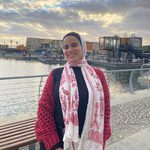Team Members

Salma Amr Ibrahim
Team Leader

Mohamed Mohamed
Team Member

Mostafa Ashraf Adel
Team Member

Mohamed Mourad
Team Member
Supervisors

Dr. Walaa Hassan
Associate Professor

Eng. Youssef Talaat
Teaching Assistant
Abstract
The main objective of this project is to develop an intelligent system that can recognize and categorize the four stages of AD (Alzheimer’s Disease) utilizing cutting-edge image analysis methods and deep learning models, as well as to provide a full report on the model’s diagnosis of the patient. This research will use MRI(Magnetic resonance imaging), which has been determined to be one of the most prevalent and common medical imaging methods, taking a non-invasive approach in the identification and classification of the AD stages. As such, we will utilize SHAP and a fuzzy-based expert system to fulfill the full potential for each diagnosis moreover, and we will choose the most efficient deep learning classifier to employ in the feature extraction phase.
System Objectives
• Fully automated diagnosis and discrimination between the stages of the disease while also being able to declare the mentioned stages (Preclinical Alzheimer’s, Mild cognitive impairment, Mild dementia, Moderate dementia, and Severe dementia)
• Providing a fully comprehensive explanation of each feature given out in the result using fuzzy and shap Machine learning rules.
• Optimizing the automatic selection of the many features provided.
• Increasing the performance and efficiency of our model compared to previous research works
System Scope
The system uses a brain MRI image to detect and diagnose the four stages of Alzheimer’s disease (Preclinical Alzheimer’s, Mild cognitive impairment, Mild dementia, Moderate dementia, and Severe dementia). The classification system will detect the abnormality faster than a traditional diagnosis while also being able to detect Alzheimer’s in its earlier stages. The system will:
• Classify whether the brain’s MRI is healthy or demented.
• Classify the stage of the disease (Preclinical Alzheimer’s, Mild cognitive impairment, Mild dementia, Moderate dementia, and Severe dementia).
• Generate a patient report.
• Generate a report with a full description of the reasoning behind each choice the model made
Documents and Presentations
Proposal
You will find here the documents and presentation for our proposal.
Document
Presentation
SRS
You will find here the documents and presentation for our SRS.
Document
presentation
SDD
You will find here the documents and presentation for our SDD.
Document
presentation
Thesis
You will find here the documents and presentation for our Thesis
Document
Presentation
Accomplishments
Publications
Competitions

ISEIC (International Science and Engineering Innovations Competition)
Our team achieved a significant milestone by qualifying for the final stage of the ISEIC competition for our project, standing out among the 769 teams that applied and securing our place among the top 150 qualified teams. Afterwards, We entered the second stage in January and passed it. Among the 80 university teams that qualified at the level of All of Egypt, and we have qualified for the last stage that is being held at the Air Defense College itself in Alexandria.


